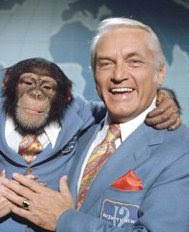dobrojim wrote:it's all well and good for us to speculate about this, that's why
we're here right?
bottom line is how much better mgmt likes a player at 6 vs someone(s)
they might like lower down. Then you weigh that against adding yet
more youth to a roster that was already among the youngest in the
league. Factor in salary issues and you've got a real connundrum.
I certainly don't know what the right answer is. How would you
weight the different variables?
Interesting discussion on the pros & cons of trading back. I'll borrow jim's post to make a few points. To me there are three things you get when trading back:
1) The sweetener. This is obvious - whatever the team with the lower pick gives up to get the higher pick. Could be another pick, a player, absorb a contract, etc. This is usually the only thing fans look at in evaluating the trade down.
2) The salary difference. Under the current CBA, the difference between the #3 and #6 picks will be over $1M per year, or over $5M over the 4 years of the contract. That's not insignificant when you have teams at the margins eyeing the cap/tax threshold. The difference from #6 to #9 would be around $750K per year. Not as much, but also not nothing.
3) Lowered expectations. This may be the most important factor, and yet is almost never discussed. Jimmer at #3 invites a ton of criticism. Jimmer at #6 at least sounds better. And I'm not even that concerned about the criticism for the Front Office, I'd be more concerned about the pressure the player puts on himself to live up to the draft position.
Now, all three of those added together have to overcome the additional value you'd get in just taking the player you want at the higher draft position - or the risk that said player will not be available at the slot you're trading down to.
Suppose the Jazz absolutely have to have Jimmer. (Has there ever been another top prospect who is more likely to want to play - and re-sign - in Utah?) They figure they can't get him at #12. If they take him at #3, they'd have a higher salary and higher press/expectations. Moving back to #6 to take him makes sense even without any sweetener, which becomes, well, icing on the cake.
On the other hand, if they really like Knight, there's a chance he could be there at #6, but much smaller. Now the sweetener has to be the factor that overrides the risk of the guy you want not being available at the later pick.
For the Wiz, I see a similar dynamic between, say #6 and #9. Lower salary, lower expectations, and a decent likelihood that whichever player they like (Vesley?) they can get anyway and not have the pressure of having "reached" for him. That's why, for me, if Kanter's off the board, the #9 and #19 would be an absolute no-brainer - unless they're sold on Jonas and take him as a JVMcG insurance policy. I get that it means a lot of rookies/2nd year players, probably too much yoot, but better management of the money & expectations - plus another Lottery ticket (so to speak) at #19 - makes it a good deal in my book.






















